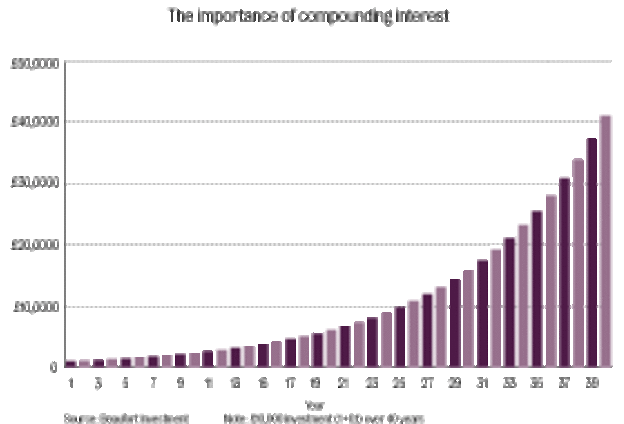
In a world that has become increasingly short-termist, it is worth examining the power of the longer term and its importance to successful investment strategies.
And when we say longer term, we mean long term – when short term (up to five years at least) seems like an eternity to many.
To do this we are going to borrow three quotes attributed to theoretical physicist Albert Einstein that are pivotal to success and all three relate to the same phenomenon – compound interest.
“The power of compound interest is the most powerful force in the universe.”
- “Compound interest is the eighth wonder of the world. He who understands it, earns it... he who doesn’t... pays it.” (The latter seems to fit well with those who take out pay day loans although they may understand the consequences but just be desperate).
- Compound interest is “the greatest mathematical discovery of all time”.
Income reinvested
The annual Barclays Equity Gilt Study also sheds some light on this phenomenon. In this case, it relates to income reinvested rather than spent.
The 2018 study looks at returns of assets since 1899 and highlights the importance of compounding. The difference in cumulative returns of the UK equity market since 1899 between income spent and income reinvested is staggering.
Source: Beaufort Investment
Roughly half of the total return of the UK equitymarket has been generated from income reinvested.
For example, £100 invested in 1899 across a representative basket of stocks of the UK market would only be worth a mere £204 today, adjusted for inflation, but a whopping £34,758 in real terms once factoring in reinvested dividends.
Another common myth is that you can save money by spending (on bargains).
Key points
- Compounding has a huge impact on an investment portfolio
- The risk of equities diminishes over time
- Riskier portfolios are likely to generate higher volatility
This is an oxymoron; you can only save by not spending. To give you an example and, for simplicity’s sake, assuming a return of 10 per cent a year: if you invested £10,000 in year one you would receive £1,000 in year one, £1,100 in year two (10 per cent on £11,000) and so on (see graph).
Therefore after 40 years you have a pot of nearly half a million pounds (£452,593).
However, if you chose to spend £30,000, on say a shiny new car, the longer-term impact is considerable.
By removing this money from the compounding process, it costs you over £200,000 (£201,825) over 20 years and a staggering £325,041 over 30 years – perhaps not such a bargain. This gain emphasises the point of the merit of reinvesting income and dividends.
US investor Warren Buffett is another source of great quotes that are useful to bear in mind when thinking about investing. The first is: “Price is what you pay. Value is what you get.”
And the second: “Only buy something that you’d be perfectly happy to hold if the market shut down for 10 years.” The first quote suggests that investors should fight the behavioural traps of anchoring and hindsight bias.
What you paid for an investment was an accident of history and may or may not relate to the value of that investment today.
The second relates to equity time frames. Investors should only contemplate investing if they are prepared to hold that investment over the medium term (five to 10 years) or preferably longer term. The risk in equities generally diminishes as the timescale is lengthened. Well-diversified portfolios become less risky over time as short-term volatility is washed away.






